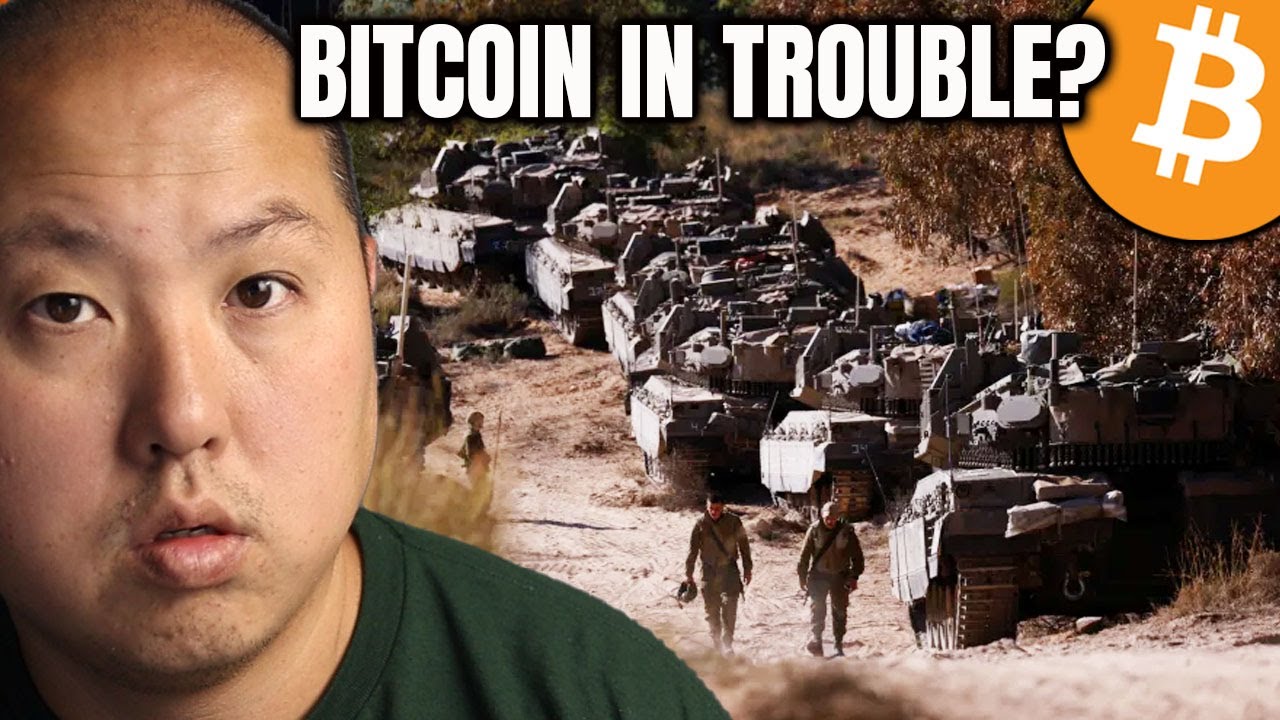I, as an avid follower of the cryptocurrency market, find myself pondering the potential impact of the Israel-Hamas conflict on Bitcoin. It is undeniable that conflicts and geopolitical tensions have the power to influence various aspects of the global economy, but what about Bitcoin? As I delve into this topic, I invite you to join me on this thought-provoking journey as we explore whether Bitcoin is in trouble due to the Israel-Hamas war.
Is Bitcoin in Trouble Because of the Israel-Hamas War?
Introduction
As cryptocurrencies continue to gain prominence in the financial world, their performance and potential vulnerabilities have become subjects of great interest. One recent event that has captured the attention of Bitcoin enthusiasts and investors is the Israel-Hamas conflict. With this article, I will delve into whether Bitcoin is in trouble because of the ongoing war and explore its potential impact on the cryptocurrency market.
The Impact of the Israel-Hamas Conflict on Bitcoin
A Brief Overview
The Israel-Hamas conflict, a long-standing territorial dispute in the Middle East, has witnessed periods of intense violence and unrest. Both sides have been engaged in military operations, causing substantial damage to infrastructure and affecting the lives of countless civilians. Amidst all this turmoil, it is natural to ponder the implications of such conflicts on the global financial landscape, including the realm of cryptocurrencies.
Bitcoin’s Performance
One of the primary concerns for cryptocurrency enthusiasts is the potential impact of the Israel-Hamas conflict on Bitcoin’s performance. Historically, Bitcoin has proven itself to be resilient to geopolitical tensions. It has weathered various crises, including the Greek debt crisis and the U.S.-China trade war. Despite short-term price fluctuations, Bitcoin has consistently bounced back and demonstrated its ability to recover.
Inflation and Previous Cycles
To understand Bitcoin’s reaction to the Israel-Hamas conflict, it is vital to analyze the factors that influence the cryptocurrency’s value. Bitcoin is often considered a hedge against inflation due to its decentralized nature and limited supply. In times of economic uncertainty and inflationary pressures, investors turn to Bitcoin as a store of value. Given the rising tensions in the Middle East, the potential for increased geopolitical instability might drive more individuals and institutions towards cryptocurrencies.
Another aspect worth considering is Bitcoin’s historical price cycles. Bitcoin has experienced several boom and bust cycles, often attributed to market trends and investor sentiment. While external events can contribute to short-term price volatility, the overall fundamentals of Bitcoin as a decentralized digital currency remain unchanged. Therefore, it is essential to view the Israel-Hamas conflict through the lens of Bitcoin’s historical performance and longer-term market trends.
Gensler’s Stance on Crypto and the US Treasury ETF
Gary Gensler, the Chairman of the U.S. Securities and Exchange Commission (SEC), has been vocal about regulation in the cryptocurrency space. Gensler’s approach towards cryptocurrencies, including Bitcoin, has sparked debates and uncertainties among market participants. The Israel-Hamas conflict, coupled with Gensler’s proposed regulations, may create additional market apprehension. However, it is important to note that regulatory measures can bring stability and legitimacy to the crypto industry, ultimately boosting investor confidence.
The Potential Impact
While it is challenging to predict the exact impact of the Israel-Hamas conflict on Bitcoin, it is crucial to approach the subject with a balanced perspective. Bitcoin’s decentralized nature and global accessibility make it less susceptible to localized conflicts. However, any significant disruption to the global financial system can indirectly affect cryptocurrencies, including Bitcoin. Investors should remain vigilant and closely monitor geopolitical developments for potential market shifts.
Conclusion
While the Israel-Hamas conflict undoubtedly carries implications for global financial markets, including cryptocurrencies like Bitcoin, it is premature to conclude that Bitcoin is in trouble solely due to this conflict. Bitcoin’s resilience, historical performance, and the broader socio-political and economic landscape play crucial roles in its value and market dynamics. Therefore, investors should consider multiple factors when assessing Bitcoin’s future prospects and carefully analyze the potential impact of any specific geopolitical event.
FAQs
1. Is Bitcoin completely unaffected by geopolitical events like the Israel-Hamas conflict?
Bitcoin has shown resilience to geopolitical events in the past. Although short-term price fluctuations may occur, its decentralized nature and global accessibility make it less susceptible to localized conflicts. However, significant disruptions to the global financial system can indirectly impact cryptocurrencies, including Bitcoin.
2. Can the Israel-Hamas conflict lead to increased adoption of Bitcoin?
In times of geopolitical tensions and economic uncertainty, Bitcoin has often been viewed as a safe haven and a hedge against inflation. Increased geopolitical instability may drive more individuals and institutions towards cryptocurrencies, including Bitcoin, as a store of value.
3. How might Gary Gensler’s stance on cryptocurrencies impact Bitcoin during the Israel-Hamas conflict?
Gary Gensler’s proposed regulations and approach towards cryptocurrencies, including Bitcoin, have created uncertainty in the market. The Israel-Hamas conflict, combined with regulatory measures, may contribute to market apprehension. However, regulations can also bring stability and legitimacy to the crypto industry, ultimately boosting investor confidence.
4. What should investors consider when assessing the potential impact of the Israel-Hamas conflict on Bitcoin?
Investors should adopt a comprehensive approach when evaluating the impact of the Israel-Hamas conflict on Bitcoin. Factors such as Bitcoin’s historical performance, market trends, geopolitical developments, and broader socio-political and economic landscape should be considered to gain a holistic understanding.
5. How can investors prepare for potential market shifts caused by the Israel-Hamas conflict?
Investors should remain vigilant and closely monitor geopolitical developments. Diversifying their investment portfolios, keeping abreast of regulatory changes, and staying informed about market trends can help investors prepare for potential market shifts caused by the Israel-Hamas conflict and other geopolitical events.




